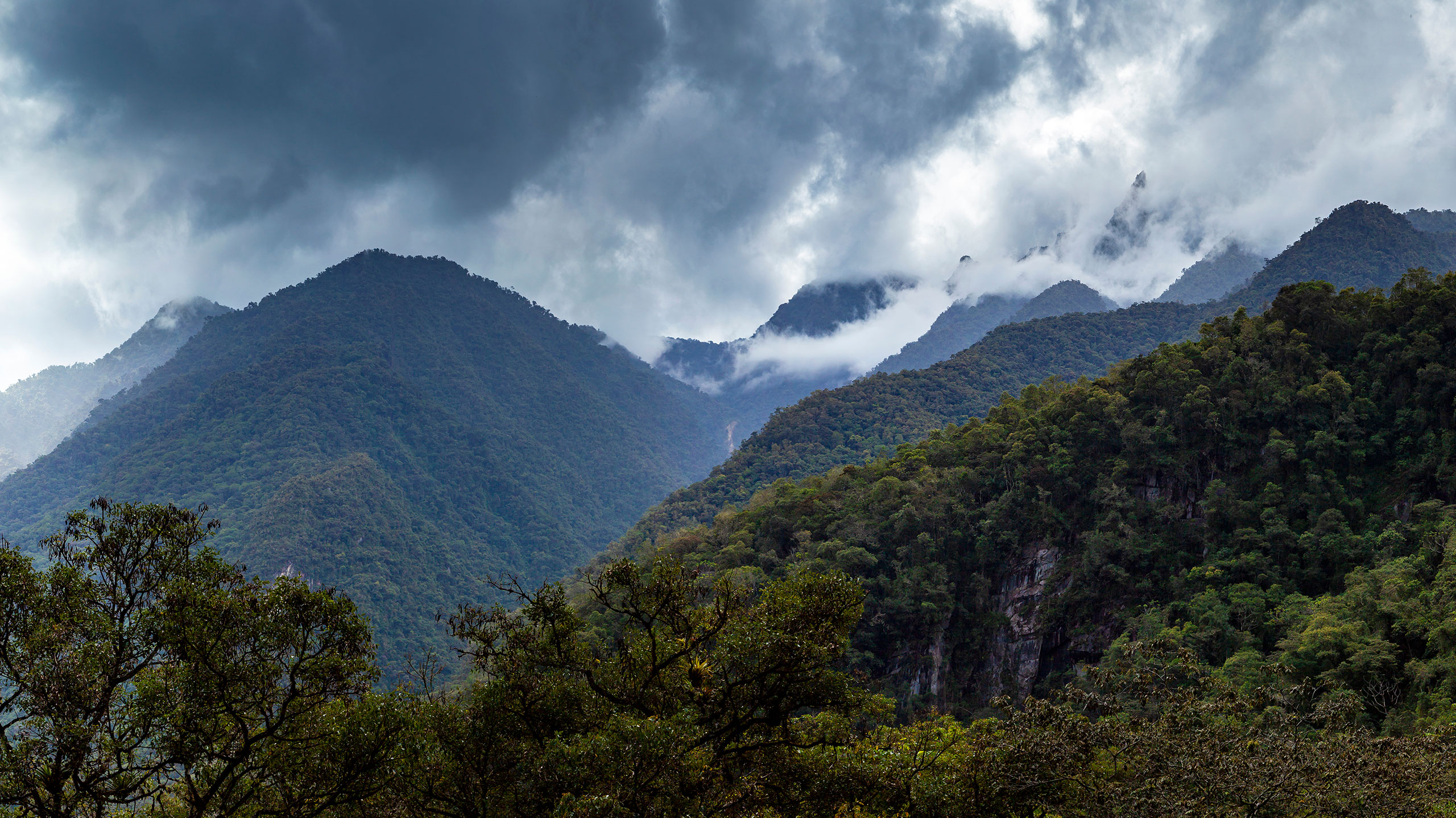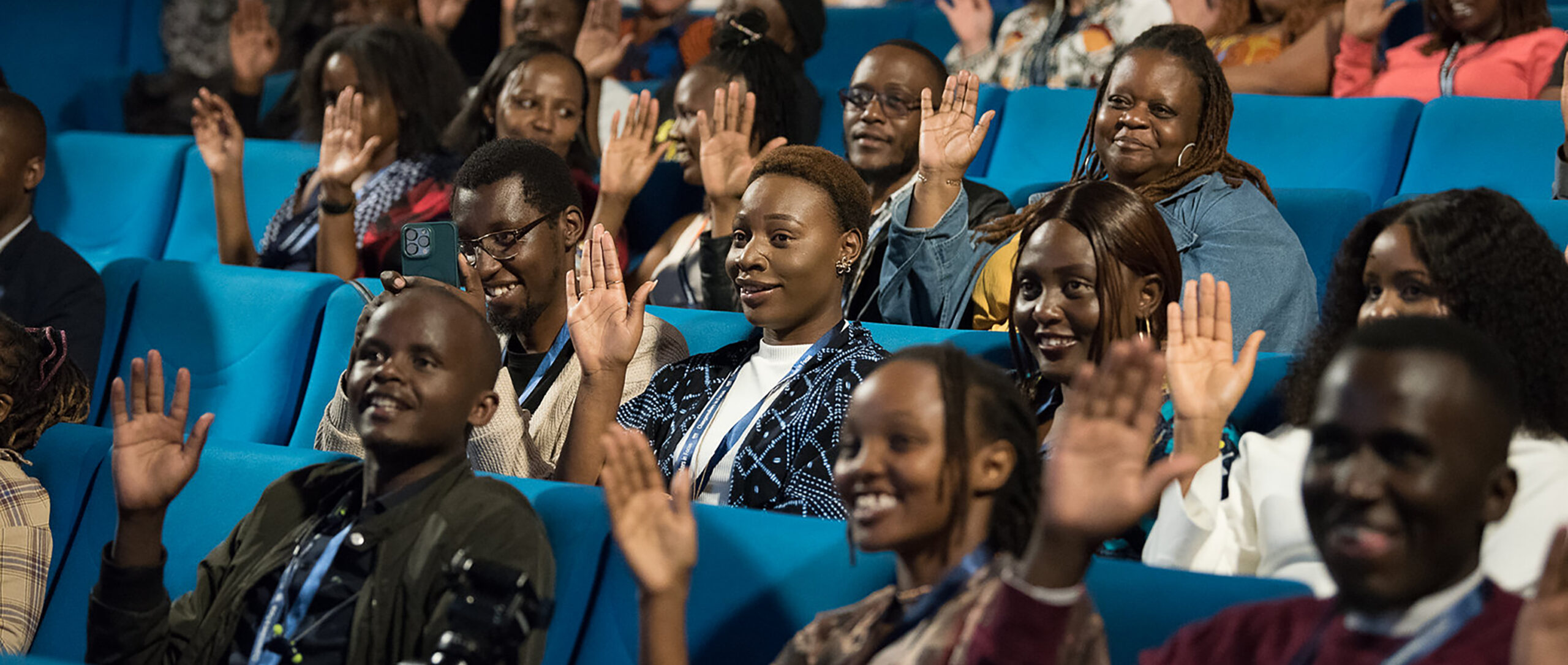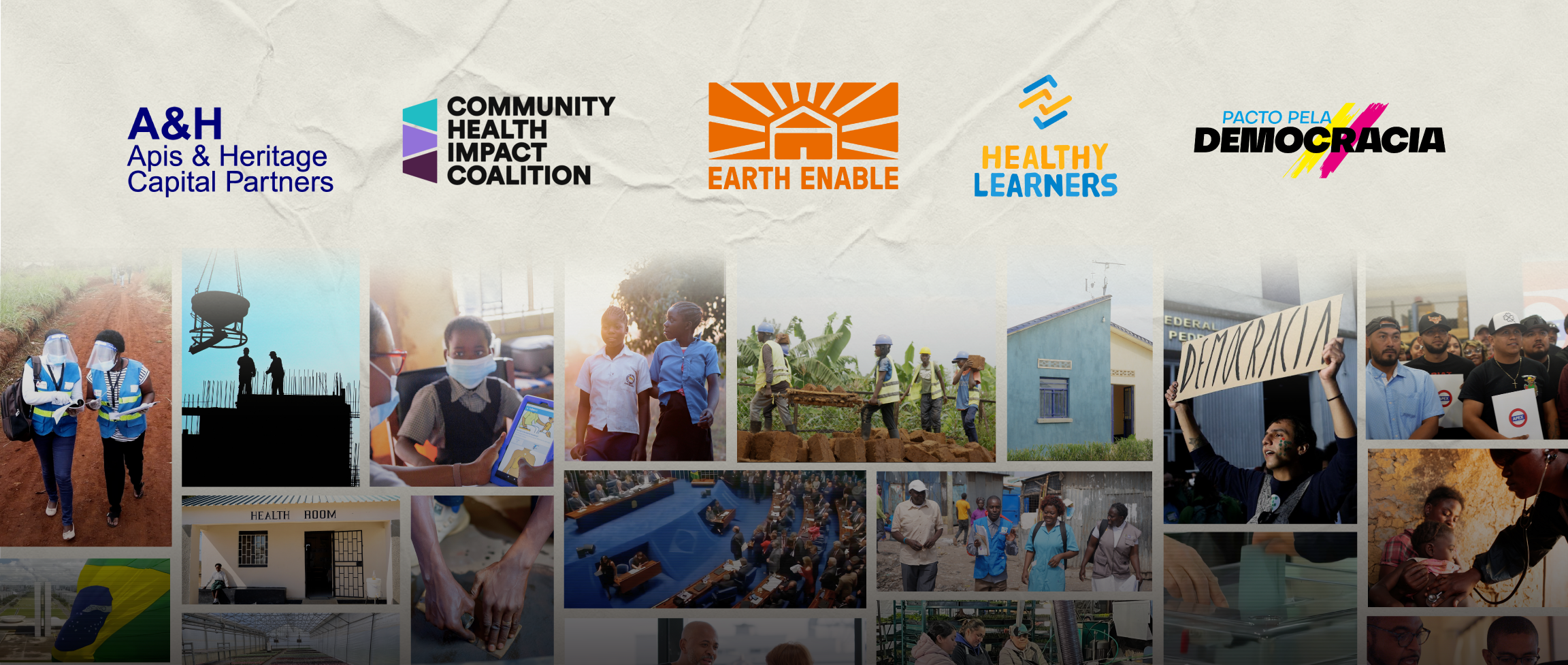How Indigenous Leadership and Innovative Investing Shape Climate Solutions in Andean Region
The Skoll Foundation supports social innovations that advance renewable solutions, shape policies, influence private sector action, develop new narratives, and build strong support for climate action around the world. Skoll awardees and grantees in Latin America are working alongside indigenous communities to protect forests, enable livelihoods, and strengthen health systems amidst the ongoing pandemic.
This November, global leaders will gather at the UN COP26 to renew Paris agreement commitments to ensure countries act together to reduce emissions and limit global temperature rises. COP discussion will focus on ways to 1) achieve global net zero with country targets to reduce emissions, 2) protect communities and natural habitats, 3) and mobilize finance to achieve goals. Leading up to COP26, practitioners, policy makers, and private sector actors have mobilized with various campaigns, commitments, and an unprecedented $5B donor climate pledge to support climate solutions.
We were thrilled to join our Andean region network partner, Impaqto, for the annual CLIIQ Summit, which explored some of these themes. Claire Wathen, Skoll Foundation’s Director, Network & Partnerships, chatted with Michelle Arévelo-Carpenter, CEO of Impaqto, about the Summit that explored regional connections to COP26 focus on indigenous communities and forests and innovative investment vehicles.
Claire Wathen: Help ground us in your perspective connecting and serving communities across South America impacted by changing climates.
Michelle Arévelo-Carpenter: South America is at a climate crossroads: as the region’s population increases and macro-economic trends show growth in its markets, two key ecosystems that are extremely vulnerable to climate change are facing the biggest challenges yet. Estimates expect that the coldest years on record in the Tropical Andes will be warmer than the warmest years to which animals and humans have adapted to so far. Changing weather patterns are affecting the livelihoods of millions of people, directly affected by extreme droughts, hail storms and frost in the highlands of the Andes mountains.
Meanwhile, the neighboring Amazon rainforest macro-ecosystem plays a key role in absorbing and storing carbon for the entire continent. However, research published in 2021 now shows that forest degradation is taking a toll on this crucial CO2 sponge, now that some regions of the Amazon emit more carbon dioxide than it absorbs. Amazon fires have directly affected Amazonic cities and indigenous communities that have for centuries acted as stewards of the ecosystem’s conservation.
Claire: Why do you host CLIIQ? How does the gathering connect the region?
Michelle: Facing ecosystemic changes requires ecosystemic approaches to finding solutions: creating encounters of unlikely allies like front-line defenders, start-up innovators, philanthropists, and impact investors to find solutions in collaboration. This is precisely what we aim for when we convene yearly the first week of October at the Cumbre Latinoamericana de Inversión de Impacto / NEXUS Latam Summit (CLIIQ for short) — holding space for change makers of all walks of life to take a moment of pause, reconnect and build new strategies to face our collective regional challenges.
This year, we held it again as a virtual summit, but with an emphasis on human connection and virtual/analog experiences, which connected us beyond the teleconference room: participants received a guayusa tea bag in the mail which they then prepared and shared in an Amazonian tea ceremony facilitated by an indigenous spiritual leader to connect through our collective dreams.
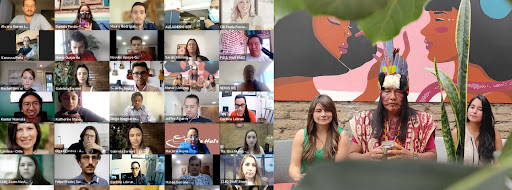
The Summit is co-hosted by IMPAQTO – a B Corporation dedicated to weaving the threads that make up an impact ecosystem in Latin America, starting with a focus on the Andean region. IMPAQTO is a Skoll Foundation network partner, working on four dedicated fronts to improve the underlying conditions in which change makers and social entrepreneurs operate: (a) offering a community of support through a network of coworking spaces, (b) an impact business accelerator, (c) a consulting practice dedicated to the network with corporates, multilateral agencies, and public innovators, and (d) an impact investment fund for early-stage impact companies. Our long term vision is to change the course of destructive economic growth by demonstrating market-driven models for protecting the planet and communities.
Claire: What major climate solution themes emerged during the Summit?
Michelle: This year’s CLIIQ Summit had thematic pillars to guide our collaboration around climate, new indigenous leadership, and investing for impact. Participants started out connecting with purpose, through the spiritual guidance of Sapara Indigenous leader Manari Ushigua, who reminded us that the “rightful place of humans on earth is to achieve balance with nature.”
A similar call to reflection came from The Soul of Money author Lynne Twist, who invited us to see the challenge with different eyes “What if the climate crisis is not happening to us, but rather, it’s happening for us, its feedback, powerful message to wake up and give new birth to life on earth,” she said. In between these two conversations, the Summit’s networking sessions prompted also more technical, yet paradigmatic dialogues on the opportunities and limitations of different business models for conservation and the need to involve systems thinking into carbon capture markets.
Claire: CLIIQ is known for bringing together unlikely allies and new perspectives to ongoing conversations. What developments did you see this year?
Michelle: The convening also offered opportunities for new voices within climate action conversations. For instance, conservation leaders and environmentalists connected with the co-founder of the Latin American on-demand delivery unicorn Rappi, who requested feedback on a crypto-currency based company aiming to leverage NFTs for conservation of Amazon rainforests. On another panel, Sanni and Yanda Montaguano, the brother-sister co-founder pair of Tawna Cine, boldly announced their intent to narrate the amazon through digital means to the world. “Our tools in this struggle are our cameras,” said Sanni, the indigenous co-founder of an audiovisual production start-up.
New media also came up as a means to influence the world’s perception of precious ecosystems like the Amazon rainforest, as Moi Guiquita, Tiktok super-star and indigenous entrepreneur behind WaponiAmazonia reminded us that to change the tide, “we need to connect people to the intangible value of nature, the forest, its animals and inhabitants on a regular basis, since such few people can actually visit.”
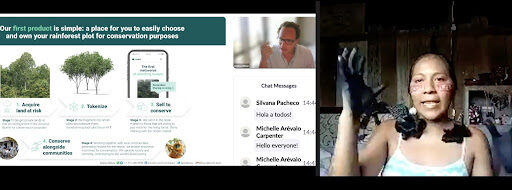
Claire: For you, what were the most important takeaways from the convening this year?
Michelle: Ultimately, conversations veered towards using a systems change approach to conservation, one that articulates a vision of the reality we want to create in Latin America instead of focusing just on the problems we want to avoid. Systems thinking has been, a powerful driving force in the case of the Sacred Headwaters Initiative in their ambitious goal of protecting 86 million acres of rainforest, advancing indigenous stewardship of lands, and proposing an alternative model that is nature-positive and regenerative.
Likewise, the work of impact investors and their efforts in innovating to finance conservation, regenerative projects, and leverage patient capital for green results requires a systemic analysis of players and incentives to identify opportunities. As I said before, ecosystemic challenges require systemic solutions: it all starts with an entire community coming together to think through new ways to continue the important work of realizing a different vision of the future of Latin America.
Want more stories of transformational change on the world’s most pressing problems? Sign up for our monthly newsletter.
